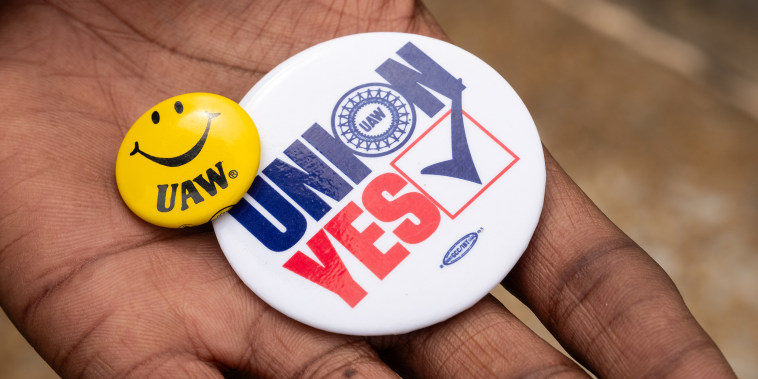The recently concluded vote by Volkswagen workers in Tennessee to join the United Auto Workers (UAW) has marked a historic win for the union and the employees who have long sought representation. This victory signifies not only a breakthrough for the workers at the Chattanooga plant but also a significant development in the landscape of labor relations within the U.S. automotive industry.
One of the key factors that played a crucial role in the success of the unionization vote was the collective efforts of the workers to come together and advocate for their rights. By demonstrating unity and solidarity, the employees showcased their determination to address issues such as job security, fair wages, better benefits, and improved working conditions. This sense of camaraderie among the workers proved to be a driving force behind the decision to unionize.
The significance of this win extends beyond the Volkswagen plant in Tennessee. It sets a precedent for other workers across the nation who may be considering unionizing to improve their working conditions. The success of the UAW in organizing Volkswagen employees serves as an inspiration and a potential blueprint for labor movements in other industries, encouraging workers to stand up for their rights and demand better treatment from their employers.
Moreover, the collaboration between the workers and the UAW demonstrates the power of collective bargaining in achieving positive outcomes for employees. Through negotiations with the union, workers can leverage their strength in numbers to secure favorable terms in terms of wages, benefits, and job security. This partnership between labor and union representatives highlights the importance of a balanced and productive relationship between workers and management, where both parties work together to ensure a fair and equitable work environment.
The unionization of Volkswagen workers in Tennessee also highlights the evolving dynamics of labor relations in the 21st century. As the workforce becomes more diverse and interconnected, employees are increasingly recognizing the value of collective action in addressing common concerns and achieving shared goals. The success of the UAW in organizing Volkswagen employees underscores the relevance of unions in the modern labor landscape and their ability to empower workers to advocate for their rights in a rapidly changing economy.
In conclusion, the historic win for the UAW in the Volkswagen plant in Tennessee represents a significant milestone in the journey towards achieving fair labor practices and ensuring that workers are treated with dignity and respect. By coming together and joining forces with the union, Volkswagen employees have demonstrated the power of solidarity and collective action in shaping a more just and equitable workplace. This victory not only benefits the workers at the Chattanooga plant but also serves as a beacon of hope for labor movements across the country, inspiring workers to stand up for their rights and demand better working conditions. As the legacy of this win reverberates throughout the automotive industry and beyond, it serves as a reminder of the transformative potential of unity and collaboration in creating a more inclusive and sustainable future for all workers.
